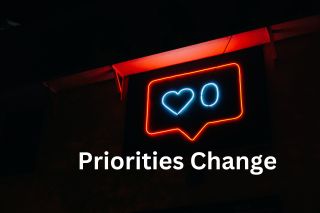Therapy
Why Therapy Should Be Subversive
Psychologist Nancy McWilliams advocates for challenging everyday values.
Posted January 2, 2024 Reviewed by Michelle Quirk
Key points
- Many values that media promotes seem positive but may set up false expectations for people.
- Psychologist Nancy McWilliams argued that therapists should challenge these values to help us accept reality.
- Mental health is guided by beliefs, and well-being may require us to examine and challenge cultural beliefs.

“You can do anything you put your mind to!” What does that slogan mean? In everyday use, it’s an exhortation to try hard and believe in yourself. It suggests that, if you have a goal that seems too big, you should try to reach it anyway. You might surprise yourself.
But, as psychologist Nancy McWilliams writes, it’s also literally false. You can’t literally do anything you imagine. In fact, that belief is pathological. It would be magical thinking to believe that as a middle-aged man with no background in physics, I could be an astronaut. Any realistic chance of “Alex, Astronaut” is long gone. Part of a good therapist’s job would be helping me understand and accept that reality, even if it feels painful.
In her article “Preserving Our Humanity as Therapists,” McWilliams argues that therapists—when they’re doing their jobs well—are subversive. They challenge common messages in our society. “You can do anything you put your mind to” is just one of them. Therapists should also challenge messages like “If you’re famous enough, you’ll be happy” and “If you’re rich enough, you’ll be happy.” There are more than enough examples of unhappy famous people and unhappy rich people for us all to know that those statements can’t literally be true. But it often feels like society is encouraging us to live *as if* they were. Good therapists can help us find mental health by challenging those beliefs.

Therapists, in other words, should have values. They shouldn’t just be mechanics trying to tweak a bad habit here or an unhelpful belief there. They should force an individual to confront deeper truths about themselves and the world they live in. They should help people to find acceptance and happiness within their limitations—not enable them to pretend they’re just one big break away from superstardom or total bliss. People tend to take their problems with them, and finding material success isn’t the same thing as figuring out how to be the person you want to be. As Hollywood star Jim Carrey put it in an interview: “I think everybody should get rich and famous and everything they ever dreamed of so they can see that that’s not the answer.”
Deeper philosophical elements form core beliefs of many therapeutic approaches. For example, scholars have traced the foundations of cognitive behavioral therapy (CBT)—one of the most effective approaches to therapy—to Stoic philosophy. A newer therapeutic approach, acceptance and commitment-based therapy (ACT), shares many core principles with Zen Buddhism. Some modern psychodynamic or depth psychology approaches grew in part out of existential philosophy. In everyday life, we tend to think that Stoicism or Zen Buddhism or existential philosophy are esoteric topics that don’t necessarily relate to our day-to-day lives. But many of the most effective tools therapists have come from just these kinds of esoteric philosophical approaches.
Toward the end of a book on antidepressants and the placebo effect, psychologist Irving Kirsch suggests therapy *is* the placebo effect. In medical research, effects are often identified by comparing people who got a real, active pill—one with medicine in it—to people who got a placebo pill—one without medicine in it. Research participants aren’t told which pill they’re getting at the time. The idea is to adjust for people’s beliefs and expectations about the treatment.
A medicine can have effects just related to people’s belief that it will be effective, even if the actual physiological effects the pill has on the body aren’t helpful. But stop to think for a moment about what therapy is meant to do. It’s supposed to change the way people think about situations and the beliefs they hold. Talk therapy isn’t targeting any specific biological pathway at all. The entire effect has to come through changing the way that people make sense of and respond to the world around them. Good therapy uses the same mechanisms as a placebo: thoughts and beliefs. That’s not a criticism of therapy. Therapy has been consistently found to help people. It’s a call to re-examine the power of change outside of biological mechanisms. It’s a reminder that our minds have a powerful effect on our bodies.
As we look for well-being in the coming year, it’s worth remembering that our beliefs can have large impacts on our mental health. And many of those beliefs have been just passively absorbed from popular culture—and marketing. These beliefs can seem normal because we’ve heard them repeated so often. But beliefs that were spread through advertising, for example, weren’t designed to optimize your well-being. They were optimized to sell products. Part of the work a therapist can do with you is to identify and challenge the beliefs you may have accidentally swallowed while swimming in a sea of content. Ultimately, bringing your beliefs into better alignment with your experience and your values may lead to more well-being than even achieving everything society wants for you.
References
McWilliams, N. (2005). Preserving Our Humanity as Therapists. Psychotherapy: Theory, Research, Practice, Training, 42(2), 139–151. https://doi.org/10.1037/0033-3204.42.2.139


